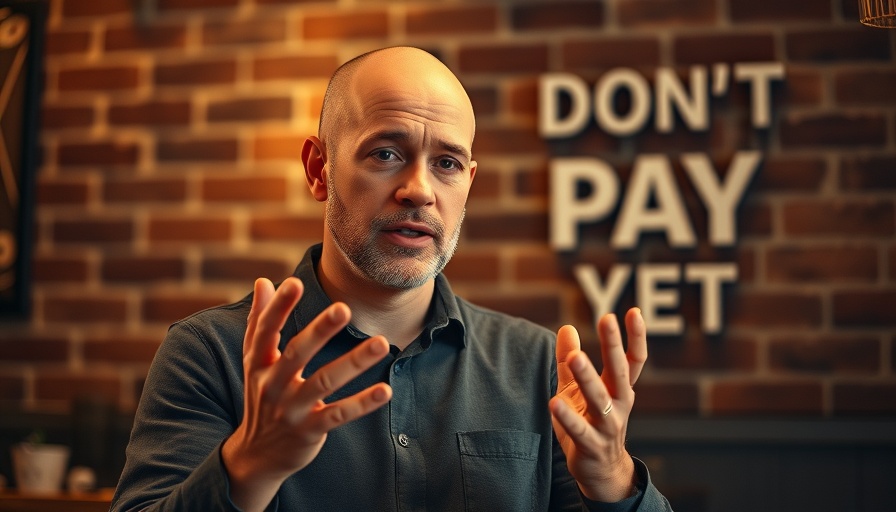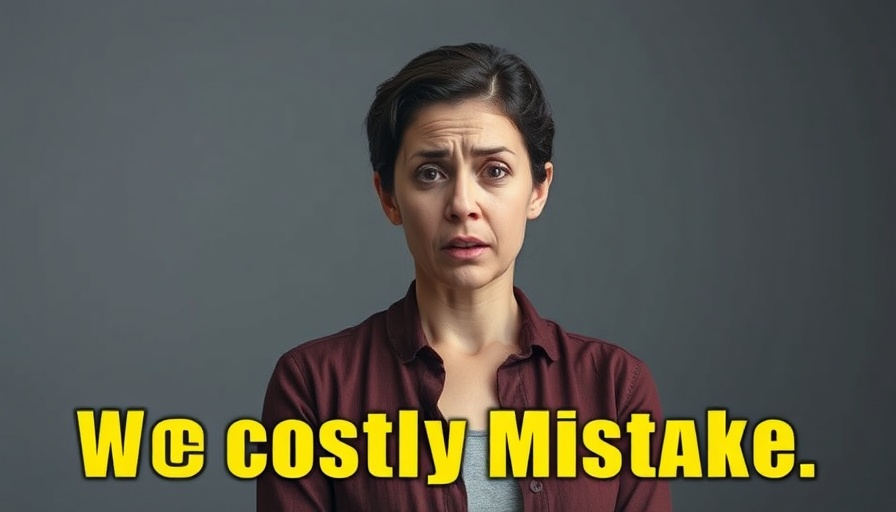
Understanding Speeding Fines in the UK: What You Need to Know
If you’ve ever been caught speeding, even marginally, you might be facing more than just a slap on the wrist. Caught doing 40 in a 30? You’re not alone. In fact, it’s essential to address speeding notifications promptly since ignoring them can lead to serious penalties. Those fines can escalate into fines of up to £1,000 alongside six penalty points on your driving license. The UK has strict rules, and understanding these can help you navigate potential financial and legal headaches.
In 'Caught Doing 40 in a 30? Watch This Before You Pay', we dive into speeding fines, exploring insights that are crucial for anyone at the wheel in the UK.
The Importance of the Section 172 Notice
When you receive a speeding notice, it’s not just a suggestion. The registered vehicle owner's responsibility is to inform the police about who was driving during the incident. This is done by completing the Section 172 notice attached to the notice of intended prosecution. Ignoring this form isn’t an option; failing to return it within 28 days is a criminal offense, and lying about the driver can lead to even harsher consequences.
Parents and Partners: Who’s Taking the Points?
It’s tempting for parents to shield their young drivers or for partners to take points for each other when nearing a driving ban. However, this isn’t just a simple favor; doing so can have repercussions. With many speed cameras today taking clear photographs, moving away from honesty can potentially lead you to face more severe penalties if the true driver is later identified.
Challenging Your Fine: Is It Worth It?
Found yourself in a situation where you want to contest a speeding fine? It’s crucial to understand that while you have the right to challenge, you are up against tough odds. If the speeding notification doesn’t arrive within 14 days of the incident, you may have a legitimate defence. However, proving your case is often not straightforward. Whether it’s about exceeding the limit momentarily or misidentification, you might be staring at costs related to hiring a lawyer, which can be hefty and without guarantees of success.
What To Do If You’re Not the Driver?
If you’re the registered owner but not the driver during the offense, it’s essential to be proactive. You can avoid a fixed penalty notice by filling out the Section 172 notice accurately. This requires you to name the driver who was operating the vehicle at the time, thus absolving yourself from the penalty. Documents such as speed camera images can support your claims if misidentification is an issue.
Cost-Effective Legal Aid: Accessing Help
Facing fines or a speeding prosecution can be daunting, but help is at hand. Services like Just Answer provide legal insight for a modest fee—sometimes as low as £5. By consulting an expert, you may regain significant funds when contesting your fine or even parking tickets, just like my colleague, who saved over £271 by using this service. Such resources are invaluable, especially for those managing financial constraints.
Final Thoughts: Be Proactive and Stay Informed
Returning to the core message of this article, if you receive a speeding fine notification, it's crucial to address it promptly. We explored various aspects of managing and challenging speeding fines in the UK. Remember, laughter might help ease the stress, but knowing the facts is what keeps you out of financial trouble. As you navigate these potential bumps, utilize resources available to you, and foster a better understanding of your rights and responsibilities as a driver.
If you’re struggling with debt or seeking to improve your financial status, consider consulting professionals and exploring smart budgeting techniques. A proactive approach can yield significant long-term benefits. Navigate the road ahead wisely!
 Add Row
Add Row  Add
Add 




Write A Comment